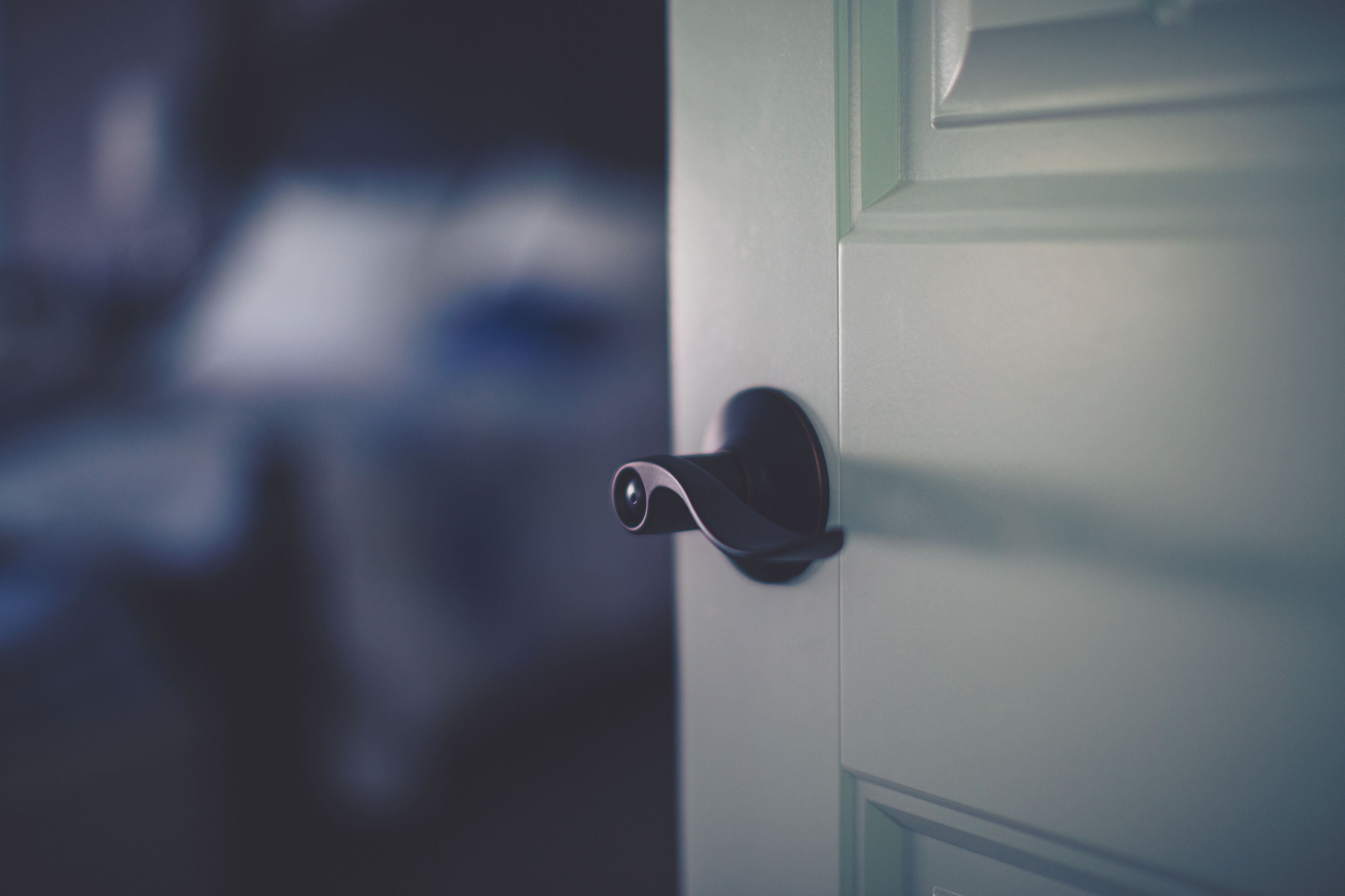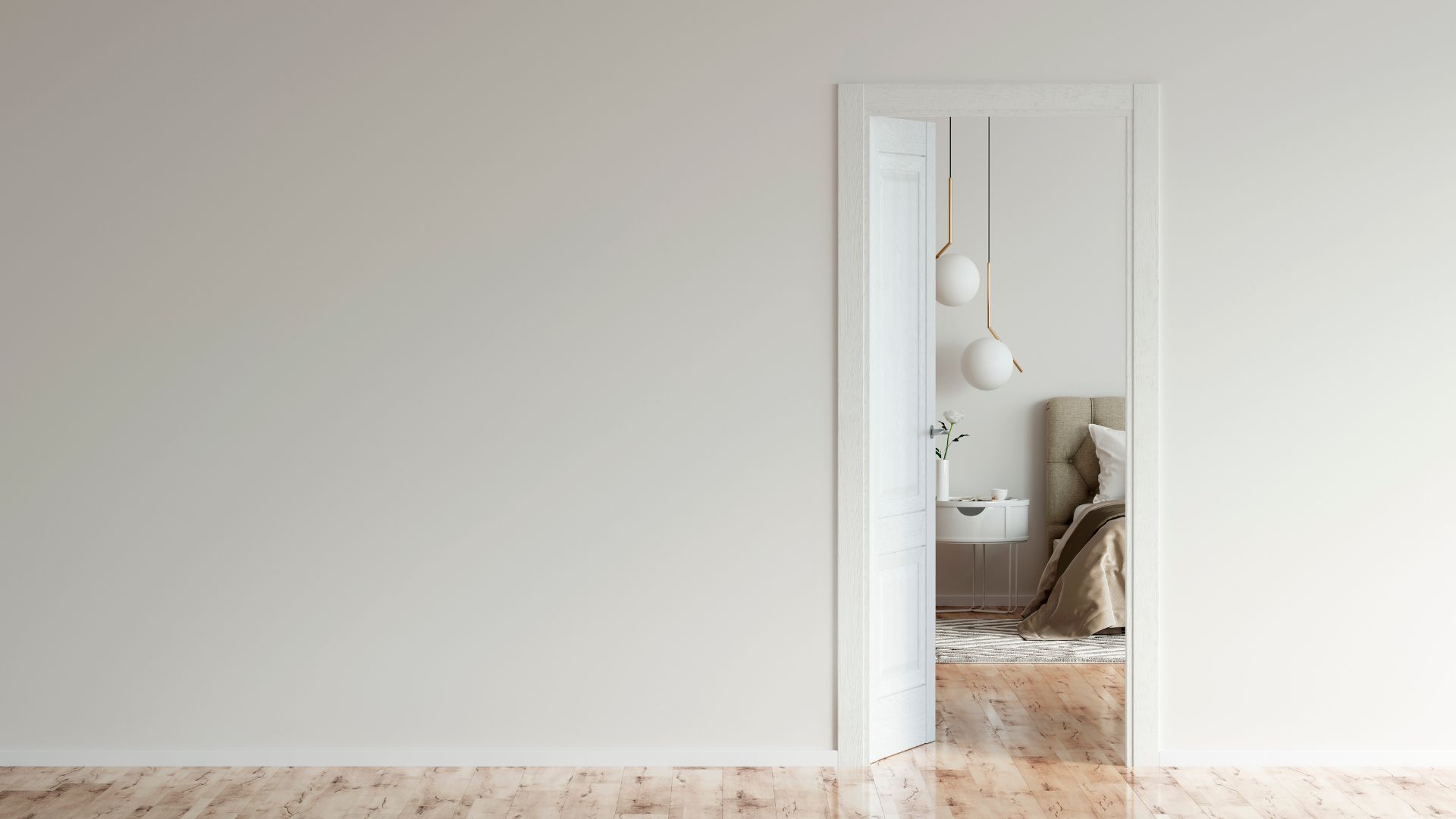The Science of Sleep and Safety
Sleeping well is crucial for our physical and mental well-being, and creating the right environment in your bedroom plays a vital role. A cool, dark, and quiet bedroom is the ideal setting for a good night’s sleep.
The Impact of a Closed Door on Sleep Quality
A closed bedroom door can significantly impact your sleep quality. Here’s how:
- Temperature Regulation: A closed door helps maintain a consistent temperature in your bedroom, preventing fluctuations that can disrupt your sleep. Research shows that a slightly cool room (around 65 degrees Fahrenheit) is optimal for sleep.
- Light Blocking: Darkness is essential for sleep, as it triggers the production of melatonin, a hormone that regulates sleep-wake cycles. A closed door blocks out external light sources, such as streetlights or moonlight, creating a more conducive environment for melatonin production.
- Noise Reduction: A closed door acts as a barrier against external noises, such as traffic, neighbors, or household sounds, creating a quieter and more peaceful sleep environment.
Security Concerns Associated with an Open Bedroom Door
Leaving your bedroom door open at night can pose security risks, especially if you live in a high-crime area or have valuables in your room. An open door provides easy access for intruders, making your home more vulnerable.
Personal Preferences and Lifestyle

Whether you choose to close your bedroom door at night is a personal decision, heavily influenced by your individual sleep habits, preferences, and the environment you live in.
Sleep Habits and Preferences
The way you sleep plays a significant role in your door-closing choice. For example, if you are a light sleeper easily disturbed by noise, you might prefer a closed door to create a quieter and more peaceful environment. Conversely, if you sleep soundly and are not bothered by outside sounds, you might leave your door open for a more airy and comfortable atmosphere.
Family Dynamics and Shared Living Spaces
If you live with others, your door-closing decisions are influenced by the dynamics of your household. Families with young children might leave doors open for easier access and supervision, while couples might prefer privacy and close the door for intimacy. In shared living spaces, roommates might agree on specific door-closing rules to ensure everyone’s comfort and respect each other’s sleep patterns.
Pros and Cons of Keeping the Bedroom Door Open or Closed, Should i close my bedroom door at night
| Factor | Open Door | Closed Door |
|---|---|---|
| Noise | More exposed to noise from other rooms or outside | Provides sound insulation, creating a quieter environment |
| Light | Allows more light to enter the bedroom, potentially affecting sleep | Blocks out light, promoting better sleep |
| Temperature | Allows for better air circulation, potentially keeping the room cooler | Can trap heat, making the room warmer |
Beyond the Bedroom: Should I Close My Bedroom Door At Night

The act of closing your bedroom door at night transcends a simple physical act. It’s a subtle yet powerful statement about personal space, privacy, and even your personality. It’s like a silent language, whispering about your boundaries and how you navigate the world around you.
Psychological Implications of a Closed Door
Closing your bedroom door creates a psychological boundary, a physical barrier that separates your personal space from the outside world. This sense of enclosure can be comforting, providing a feeling of security and control. It allows you to unwind, relax, and truly be yourself without the perceived judgment or intrusion of others. In a way, it’s a symbolic act of “switching off” from the outside world and focusing on your inner self.
